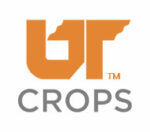LINKS
Biological Insecticides
Biological insecticides are bacteria, viruses, fungi and other microorganisms that attack insects. Naturally occurring pathogens are often very important in preventing the outbreak of pests. Some biological insecticides have been developed and marketed for the control of pests in field crops. These biological control agents generally have the advantage of being highly selective, and thus safe to the environment and non-target organisms. Common examples are nuclear polyhedrosis viruses (NPVs) and Bacillus thuringiensis (Bt insecticides), a bacteria. Some NPVs have activity of important pests such as bollworm, tobacco budworm and various armyworms species. However, they are not frequently used because of short persistence, slow activity and low efficacy relative to synthetic-organic insecticides. Bt products such as Dipel® and Javelin® are still marketed and used widely by homeowners and organic producers. They were used extensively in cotton during the 1980s and 1990s, tank-mixed with other insecticides, to help control pyrethroid resistant tobacco budworms. Now, genetically modified crops such as Bt cotton and Bt corn have been adopted by many producers. Bt crops possess one or more genes from Bacillus thuringiensis, and plants produce their own insecticide. Depending upon the genes inserted into the plant genome, Bt crops provide control of very important pests such as tobacco budworm, bollworm, armyworms, corn borers, corn rootworms, thrips (cotton), and tarnished plant bug (cotton).







